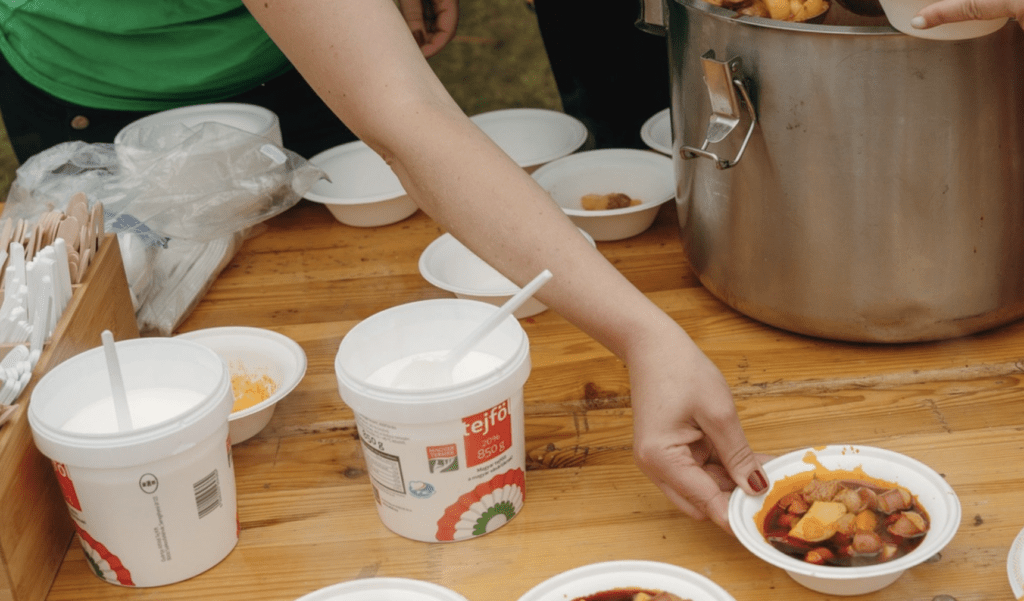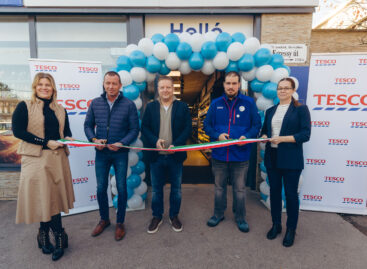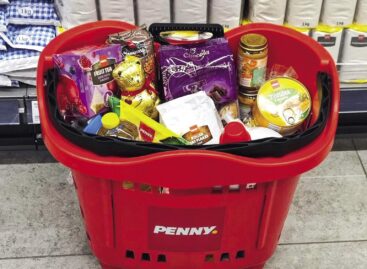Budapest saved an amount of food from Tesco stores equal to one year’s food waste
Recently, Tesco handed over the saved food representing the 100 millionth portion of food to the Food Bank, thus celebrating the World Day against Food Waste on September 29. The department store chain has operated its food rescue program in strategic partnership with the association since 2014, and since 2023 with the Ecumenical Relief Society, in order to donate products left in its stores but still usable to those in need. The amount of food donated to charity over a decade corresponds to what is needlessly thrown into the trash in the capital city over the course of a year. Since 2017, Tesco has been voluntarily reporting the amount of food waste generated in its operations every year, which it has already reduced by 74 percent in accordance with UN Sustainable Development Goal 12.3, contributing to halving food waste by 2030.

Since 2014, 100 million portions of food have been delivered to the needy from Tesco stores.As part of the daily process, food left over in Tesco stores, but still suitable for human consumption, goes to those in need. In 10 years, as many donations were received as the amount of the combined annual unnecessary food waste of the residents of Budapest, that is, in principle preventable. That is, Tesco “credited” the one-year food waste of about 1,680,000 people in the last decade.[1]
“Our primary goal is to reduce the amount of food surplus as much as possible. For this, we use advanced traffic forecasting and ordering procedures, as well as a price discount system set up for products with close expiration dates. If we are unable to sell the food, we primarily pass it on to charitable organizations, including, for example, the Ecumenical Aid Organization or the Hungarian Food Association, to local communities, state-run, civil, church, and local government organizations. The rest is donated to animal shelters and used in a biogas plant. Only the remaining products become waste. We are proud that, according to our latest report, only 0.67 percent of the food sold in our stores ended up in landfills. With our good practices, we can not only help people in difficult situations living in the vicinity of our stores, but also reduce our emissions: by more than 120,000 tons since the 2016/17 financial year,”
said Nóra Hevesi, Tesco-Global Zrt. communications manager.
Related news
Two million people have already voted, so 57 million forints will be given to locals in 125 settlements, courtesy of Tesco
🎧 Hallgasd a cikket: Lejátszás Szünet Folytatás Leállítás Nyelv: Auto…
Read more >Tesco closes the financial year with the opening of another store
🎧 Hallgasd a cikket: Lejátszás Szünet Folytatás Leállítás Nyelv: Auto…
Read more >PENNY builds on partnership-based CSR
🎧 Hallgasd a cikket: Lejátszás Szünet Folytatás Leállítás Nyelv: Auto…
Read more >Related news
How does the forint exchange rate affect consumer prices?
🎧 Hallgasd a cikket: Lejátszás Szünet Folytatás Leállítás Nyelv: Auto…
Read more >HELL CITY has arrived, led by Michele Morrone
🎧 Hallgasd a cikket: Lejátszás Szünet Folytatás Leállítás Nyelv: Auto…
Read more >









